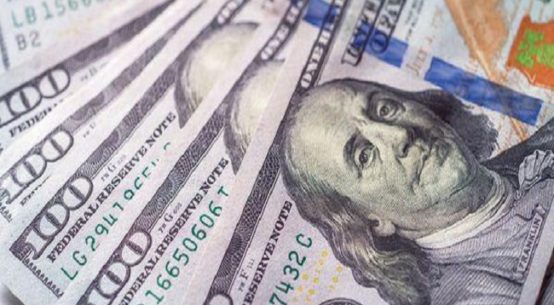Bangladesh on Thursday remembered Bangabandhu Sheikh Mujibur Rahman on his 102nd birth anniversary.
The day — a public holiday — is also observed as National Children’s Day.
Marking the day, Prime Minister Sheikh Hasina paid tributes to the Father of the Nation by placing a wreath at his portrait in front of Bangabandhu Memorial Museum at Dhanmondi-32 in Dhaka this morning.
After placing the wreath, she stood in solemn silence for some time as a mark of profound respect to the memory of Bangabandhu, the architect of Bangladesh’s independence.
PM Hasina and President Abdul Hamid are also scheduled to lay a wreath at the mausoleum of Bangabandhu at Tungipara in Gopalganj at 11am.
Hasina, also the eldest daughter of Bangabandhu, will join a programme, ‘Tungipara: Hridoye Pitribhumi’ there at 2.30pm on the occasion of his birth anniversary and National Children’s Day.
The national flag and the party’s flag were hoisted atop all party offices across the country in the morning.
Meanwhile, the Awami League has chalked out a seven-day programme at Tungipara in Gopalganj to pay homage to Bangabandhu.
Television channels and radio stations are airing special programmes marking the day.
On this day in 1920, Bangabandhu was born in Tungipara village. While studying at Islamia College in Kolkata, he got involved in active politics.
Both while in and out of jail, Bangabandhu had led the Language Movement. On February 21, 1952, when Language Movement activists were killed, Bangabandhu was observing a hunger strike in jail.
In continuation of the Language Movement, all major movements of Bengalis, including the general elections in 1970 and the War of Liberation in 1971, were led by Bangabandhu.
Through his dynamic leadership, Bangabandhu had organised the Bengali nation to fight against exploitation and repression by then Pakistani rulers. The movement culminated in independent Bangladesh through the nine-month Liberation War in 1971.
When Bangabandhu was moving forward with an aim to build a ‘Golden Bangladesh’ overcoming all obstacles, the defeated and anti-liberation war clique assassinated him, along with most of his family members, on August 15, 1975.
The government declared the period from March 17, 2020, to March 26, 2021, as the ‘Mujib Borsho’, marking the birth centenary of Bangabandhu. However, it was extended till March 31 this year.
Earlier, the President and the PM issued separate messages on the occasion.
In his message, the President said that Bangabandhu remains the eternal source of inspiration for the Bengali nation. In politics, Bangabandhu appeared as a symbol of principle and ideals.
The PM, in her message, extended her best wishes to all the children of the country on the occasion of the 102nd birth anniversary of the greatest Bengali of all time and ‘
National Children’s Day.
The theme of this year’s National Children’s Day is ‘Bangabandhu’s birthday pledge, all children have equal rights’, she said.
She urged the people of the country “to dedicate the present to the beautiful future and welfare of the children” and “build a non-communal, hunger-free and happy-prosperous Golden Bangladesh, the dream of the Father of the Nation”.
Nation celebrate Bangabandhu’s 102nd birth anniversary
Facebook Notice for EU!
You need to login to view and post FB Comments!

